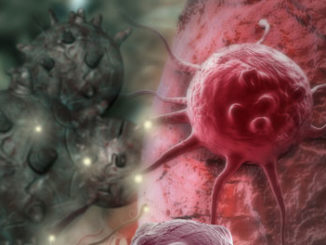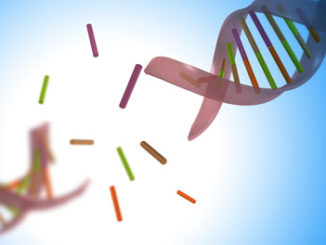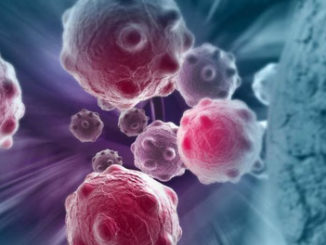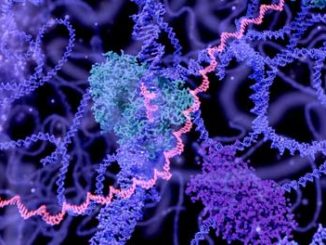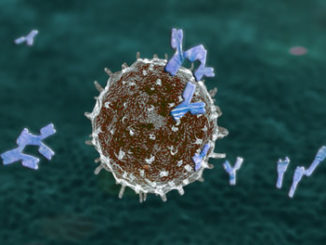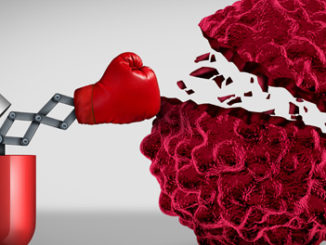Articles that explore the connection between epigenetics and diseases and disorders, including cancer, cardiovascular disease, diabetes, autoimmune disease, and more.
UK scientists from The University of Birmingham have discovered how certain cancer cells can adapt and render cancer drugs ineffective. These drugs, known as histone deacetylase (HDAC) inhibitors, are designed to disrupt cancer cells’ genetic controls. Their research, published in Epigenetics and Chromatin, may help create new therapies focused on preventing tumors from overcoming HDAC inhibitors (HDACi). Genes can be switched on or off via molecular tags that attach to DNA and transfer signals to tell the cell how to [more…]
New research has helped to clear up the function of a well-known tumor suppressor gene, RB, which prevents aberrant cell growth. Researchers from the University of Illinois at Chicago and Universitat Pompeu Fabra in Barcelona have found that pRb, or retinoblastoma protein, is a tumor suppressing protein encoded by RB that maintains proper functioning of a cell’s metabolism. By epigenetically modifying histones, pRb works to control tumor cell growth. The study was published in Genes and Development. Tumor suppressor proteins [more…]
DNA damage occurs frequently to cells as a result of normal cellular processes, but one of the worst genetic malfunctions that can occur is DNA double-strand breaks, or DSBs. This can lead to cancer and increased resistance to cancer therapy. New research from scientists at The University of Texas MD Anderson Cancer Center reported their findings regarding histone modifications, the cause of DNA double-strand breaks, and possible ways they can be fixed. Their research was published in Nature Cell Biology. [more…]
A significant advancement in cancer research was presented in a recent study conducted by scientists from Cornell University, University of Chicago, and Houston Methodist Hospital. The researchers demonstrated that a specific protein known as a cell surface receptor can cause immune cells to attack malignant tumors as opposed to protecting them via an epigenetic mechanism known as histone deacetylation. The research was published in Nature Communications. CD4+ T-cells, also known as CD4 or helper T-cells, are crucial to the immune [more…]
What if those who are resistant to insulin but don’t have diabetes could help prevent themselves and others from developing the disease? Researchers from Virginia Tech have discovered a biomarker in those who are pre-diabetic that could prevent them and potentially others from getting type 2 diabetes. The researchers uncovered that pre-diabetics, or people who are at high risk of developing type 2 diabetes, who do not respond to insulin had altered DNA in their mitochondria and had an increased [more…]
A person’s genetic code can contribute to their risk for developing non-small cell lung cancer (NSCLC), which accounts for about 85% of lung cancers. Epigenetics, the study of chemical tags that impact gene expression without altering the genetic sequence, is shown to also profoundly influence the development of cancer. In a study by Asan Medical Center researchers from The University of Ulsan College of Medicine in Korea, chromatin immunoprecipitation (ChIP)-on-chip assays and other techniques were used to investigate the epigenetic [more…]
For the very first time, epigenetic alterations have been linked to common variable immunodeficiency (CVID), the most commonly diagnosed primary immunodeficiency that leads to a decrease in antibodies and an increase in developing an infection. Scientists at the Bellvitge Biomedical Research Institute (IDIBELL) and La Paz Hospital (IDIPAZ) in Spain looked at monozygotic twins and measured epigenetic differences, specifically DNA methylation levels, between one twin with CVID and the other without the disease. The group of researchers, directed by Dr. [more…]
Researchers at the University of Alabama at Birmingham have discovered a potential epigenetic explanation for why individuals with epilepsy, particularly temporal lobe epilepsy, usually experience memory loss. They even propose a way to undo that loss of memory. Published recently in the Annals of Translational and Clinical Neurology, a group of UAB scientists believes their results could progress our understanding of numerous other disorders involving memory loss and could lead to a therapeutic approach for restoring proper memory function via [more…]
New research published in JAMA Oncology shows that DNA damage that occurs as a result of smoking may be found in cheek swabs. In light of this research, smoking is thought to adjust the epigenetic profile of cheek cells and the resulting epigenetic landscape may even be used as an early warning sign of other cancers typically unrelated to smoking, such as gynecological and breast cancers. Professor Martin Widschwendter, Head of the Department of Women’s Cancer at the UCL Institute [more…]
Scientists from St. Jude Children’s Research Hospital conducted a study that illuminates a mechanism by which leukemia cells resist steroids, a key factor detrimental to the success of chemotherapy. This discovery could help create more effective cancer drugs and improve the treatment of many autoimmune related diseases. The researchers looked at a certain type of steroid hormones involved in the immune system, known as glucocorticoids. These hormones are crucial components to the chemotherapy drug cocktail that has helped increase long-term [more…]



